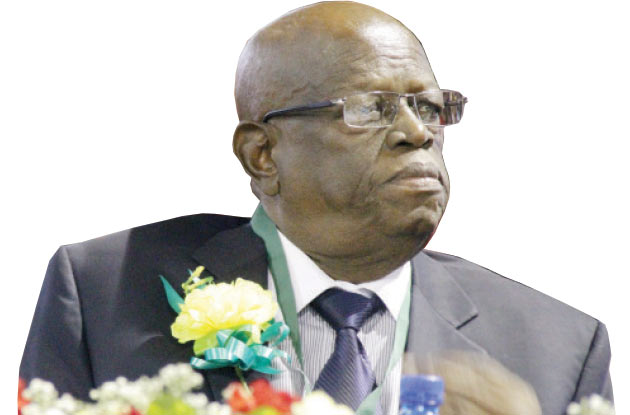Formalisation of small-scale, artisanal miners to boost gold production

Gibson Mhaka
STORIES of panners who rise from rags to riches are often told in villages where they inspire and motivate both the young and old to be self-reliant. A majority of the rural folk nowadays are joining the gold rush at a time when the country is facing one of its worst droughts in recent years.
Although alluvial mining is causing untold environmental degradation, it has brought riches to the lucky few small-scale and artisanal miners. It is also playing a crucial role in increasing national gold production.
A recent Zimbabwe Mining Federation report says small-scale miners’ production rose from three tonnes of gold in 2014 to seven tonnes last year while big players produced 14 tonnes. This year the small-scale miners are expected to double their output to more than 14 tonnes.
Experts say the increase in production which is, however, on the back of improved support from the ongoing formalisation exercise, is testimony that if fully supported both small-scale and artisanal miners have the potential to meet the target set by the government.
They say formalisation will also help thwart rampant mineral smuggling syndicates especially gold across borders. “The statistics just mirror lack of requisite equipment for both artisanal and small-scale gold miners.
This has been the biggest challenge hindering subsistence miners’ viability in their bid to enhancing gold production,” said Gideon Mubaiwa, a Kwekwe based small-scale miner.
Formalisation will help bring sanity to the operations of a sector that has more than 600 000 small-scale miners of whom about 25 000 are registered. Zimbabwe also has a further 700 000 of both registered and unregistered artisanal miners contributing to the country’s gold production.
Zimbabwe Miners’ Federation (ZMF) chief executive officer, Mr Wellington Takavarasha says small-scale and artisanal miners can produce more gold if the government can come up with light handed policies for them.
He says there is a need to review the Mines and Minerals Act as it lacks direct policies benefiting both small-scale and artisanal gold miners.
“We feel we’ve the capacity to double our output. As records show, we doubled up our production in 2015, which shows that it’s achievable and if the Government can come up with light handed policies for small-scale miners, we can produce more gold than the previous target of 20 tonnes.
“We want a win-win situation so that informal miners can come forward. The Government also needs to revise the Minerals Act which was gazetted in 1963 to accommodate small-scale and artisanal mining activities,” said Mr Takavarasha.
It is against this background that small-scale and artisanal miners are calling on policy makers and players in the mining sector to promote policies that better regulate their activities and operations. Improved regulations will have a positive impact on the overall productivity of Zimbabwe’s gold mining industry.
Mr Takavarasha says artisanal gold mining has the potential to deliver great benefits to the local economy and mining communities.
“This is so because through artisanal mining, many previously unemployed labourers can contribute to the economy,” he said. Zimbabwe Artisanal and Small-scale for Sustainable Mining Council (ZASMC) president Engineer Chris Murove says a number of stringent regulations and punitive fines imposed by various authorities as well as inadequate mining equipment were hampering artisanal and small-scale miners’ efforts to effectively contribute to the country’s mineral output.
“The biggest challenge that we face is lack of mining and milling equipment. This is so because the Chinese deal has not given miners any equipment to date.
“Another challenge is the unfavourable regulatory framework and high fees charged by authorities such as EMA and their requirements for Environmental Impact Assessment (EIA) certificates are hampering our production capacity,” Eng Murove said.
Under the Environmental Management Act Chapter 20:27, the companies’ legal duties are to avoid discharge of poison, toxic, noxious or obstructing matter or pollutants into the aquatic environment, ensure that an environmental impact assessment certificate is in place before implementation of any mining project to avoid disturbance of any wetland, rehabilitate the environment within 12 months of cessation of any operation and submit quarterly environment monitoring reports to the agency, among others.
Players in the mining sector want more proactive policies with consistent implementation to leverage the sector to catalyse sustainable development in local communities.
The players say in light of the sector’s challenges and promises, especially in Zimbabwe where gold is such a valued resource, it is important that policymakers, government and other key partners embrace partnerships that will maximise mutual benefits for all concerned while lowering the known drawbacks of both artisanal and small-scale gold mining.
Mr Pardon Sibanda, a small-scale miner from Inyathi District in Matabeleland North province said the law that called for the arrest of unregistered small-scale and artisanal miners was unfair, as it was a legacy of the racial colonial past.
“The arrest of the so-called unregistered small-scale and artisanal gold miners is unfair and we are appealing to the government to promulgate policies that recognise gold panners so that we can access government assistance.
“This is so because Government has been losing a lot of money by criminalising them as they end up selling the mineral to foreign buyers who smuggle it out of the country,” observed Mr Sibanda.
He further said the government should establish more gold buying centres to allow producers to sell their minerals on a “no-questions-asked” basis.
ZMF organising secretary Mr Thembinkosi Sibanda says failure to expedite the formalisation of small-scale and artisanal miners was affecting the sector’s targets to attain and deliver 10 tonnes of gold to Fidelity Printers and Refiners this year.
“We have spoken about the need to have operations by small-scale and artisanal miners formalised for some time now and nothing has taken shape in that regard.
“As small-scale miners we have set a target of producing 10 tonnes or more of gold but owing to the bureaucracy affecting our operation we might not achieve these targets,” said Mr Thembinkosi Sibanda.
Mr Clemence Nyathi, an artisanal miner from Hope Fountain on the outskirts of Bulawayo says decriminalisation of artisanal mining and availability of funds to buy equipment will go a long way to improve the gold production by small-scale and artisanal miners.
“Conditions in artisanal and small-scale mining are poor. We are struggling to reach full potential due to shortages of mining assets and unavailability of funds to buy equipment.
The sector forms a significant part of the livelihoods of rural Zimbabweans, who depend on it during difficult times caused by drought.
“We want the government to speedily review procedures in allocating mining concessions and urgently review the steep licence fees as it costs $350 just to register a mine prospector’s licence.
“This is so because we are being exploited by barons who are giving us peanuts despite all the hard work we endure,” said Mr Nyathi.
He says if artisanal mining is done in a more responsible way, it can be a powerful driver for positive change in the country’s mining industry. Mr Nyathi says there is also a need for the government to speed up amendment to the Mines and Minerals Act which has been in the pipeline for many years.
“If the Mines and Minerals Act is amended, it will promote investment and sustainable development, guarantee security of tenure and aid efficient use of land, as well as solve land conflicts between miners (especially small-scale and artisanal) and farmers,” he said.
Although alluvial mining has brought riches to the majority of unemployed Zimbabweans it however, comes at an enormous cost to the environment.
Environment Africa country director, Mr Barnabas Mawire, says it is important for registered artisanal miners to adopt environmental and social safeguards in their operations.
He says the negative effects of the artisanal miners’ activities, especially the loss of fertile agricultural lands, leaves communities in mining areas much poorer.
“The issue of regulation will make it easy to enforce environmental laws as you will know who you are dealing with.
“If artisanal miners are registered it also becomes easy to make them carryout rehabilitation work after their mining activities,” said Mr Mawire.
He said land degradation, environmental pollution and many socio-economic problems have been major issues with communities where small-scale and artisanal mining is practised.
“Most of these negative impacts are undoubtedly a result of deficiencies on the part of the regulatory bodies charged with monitoring the mining industry.
“Solutions to these problems are required to ensure that that the industry contributes positively to the Zimbabwean economy,” he said.











Comments